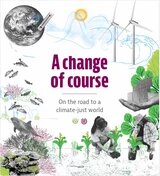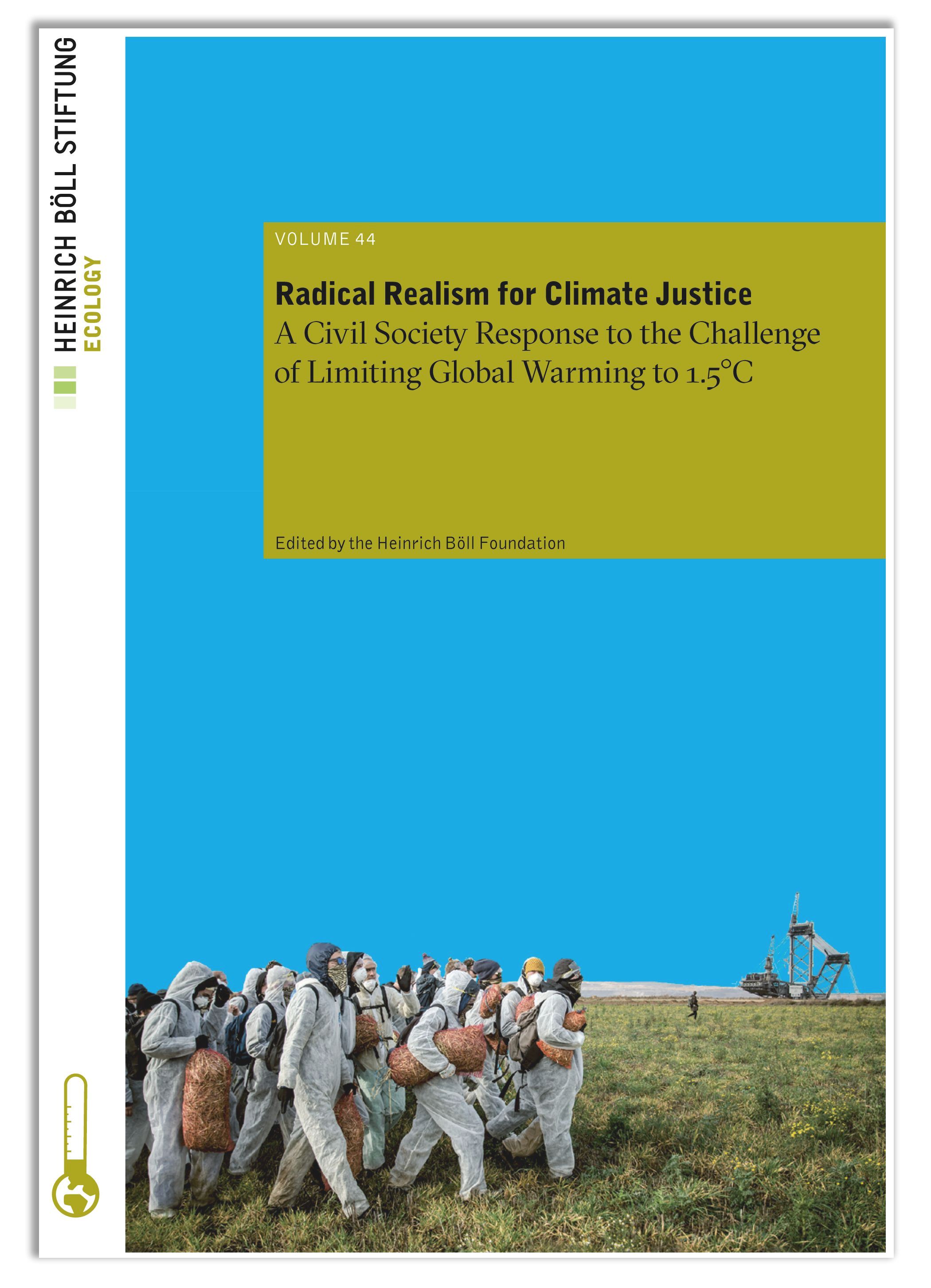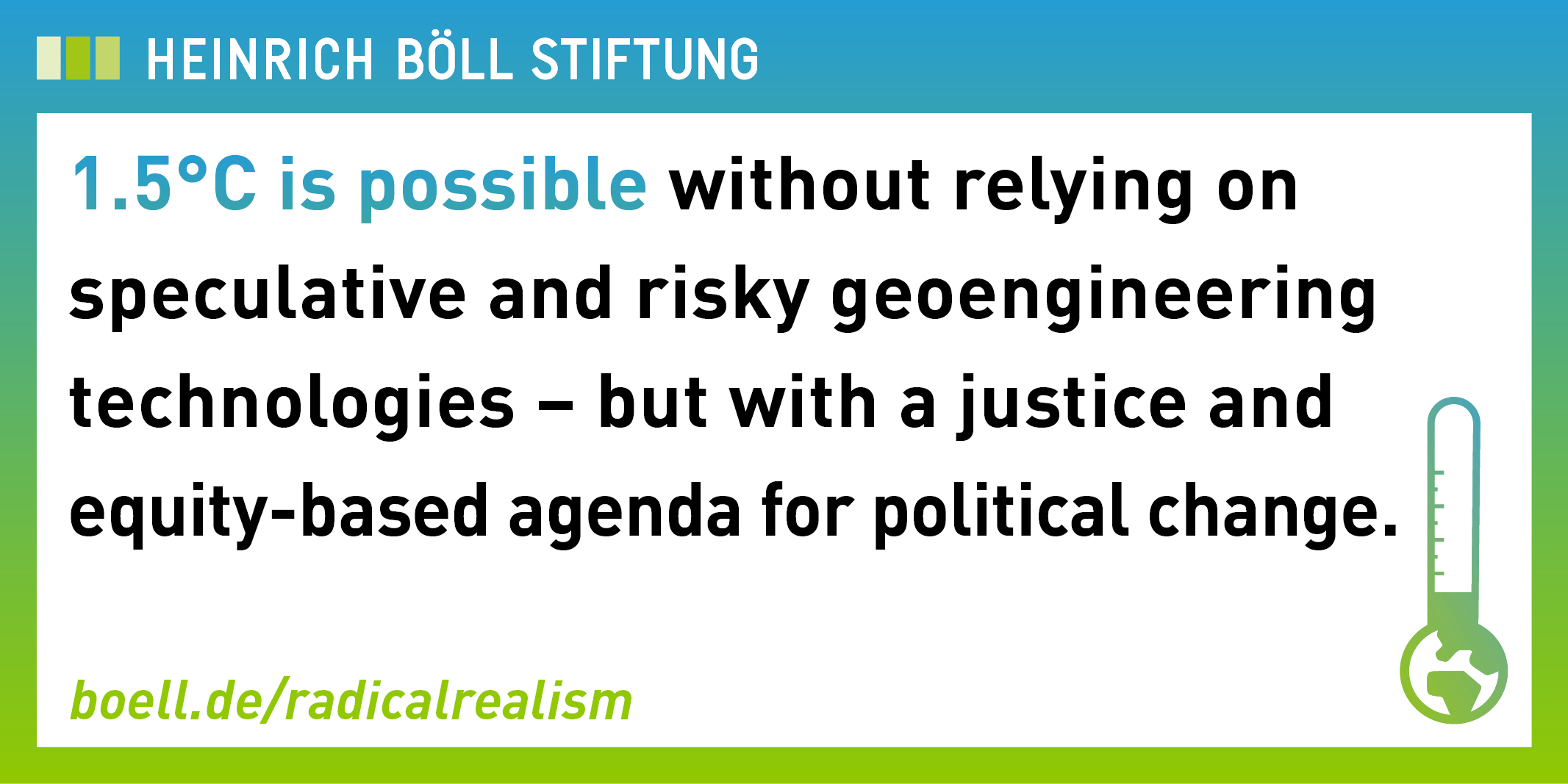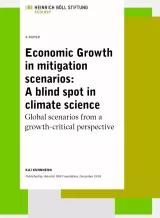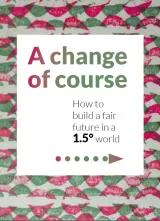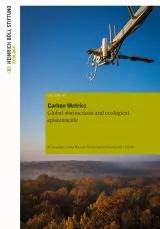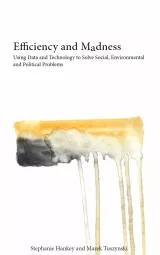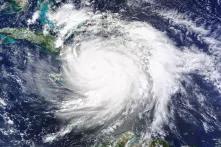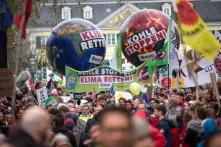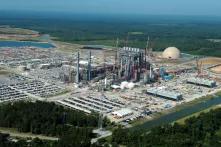Radical Realism for Climate Justice
Limiting global warming to 1.5°C above pre-industrial is feasible. And it is our best hope of achieving environmental and social justice, of containing the impacts of a global crisis that was born out of historical injustice and highly unequal responsibility.
Our Dossier is a civil society response to the challenge of limiting global warming to 1.5°C while also paving the way for climate justice. Because it’s is neither ‘naïve’ nor ‘politically unfeasible’, it is radically realistic.
Here you find an introductory overview of the disucssion on 1.5°C.
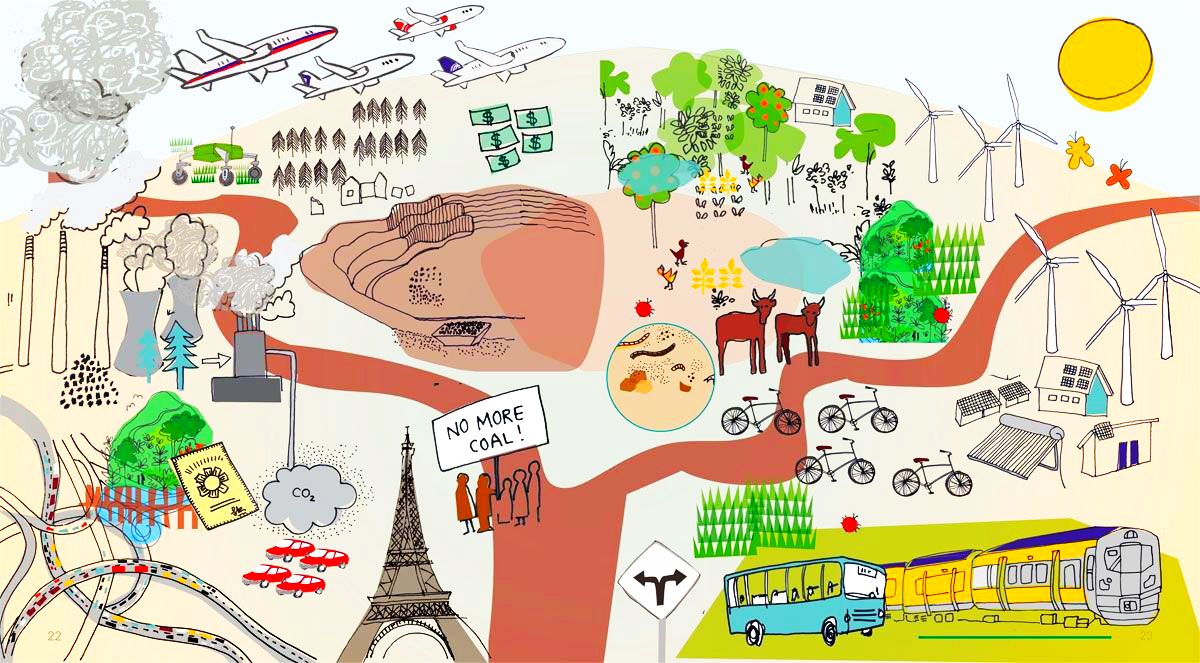
'Radical Realism' video series
Limiting global warming to 1.5°C will require a radical and deep transformation towards ecological sustainability and social justice.
#1 Exit from coal, oil & gas
Radical Realism for Climate Justice: A Managed Decline of Fossil Fuel Production - Heinrich-Böll-Stiftung
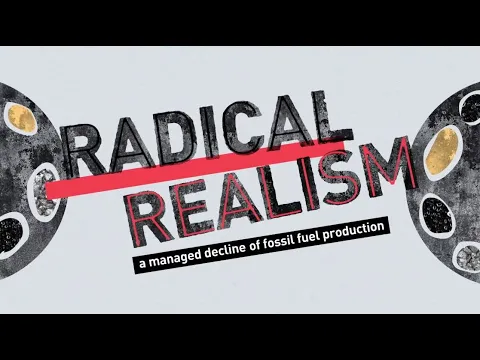 Watch on YouTube
Watch on YouTube
About the need for a managed decline of fossil fuel production and infrastructure.
With Oil Change International
#3 Getting out of industrial agriculture
Radical Realism for Climate Justice: From Industrial Agriculture to Peasant Agroecology - Heinrich-Böll-Stiftung
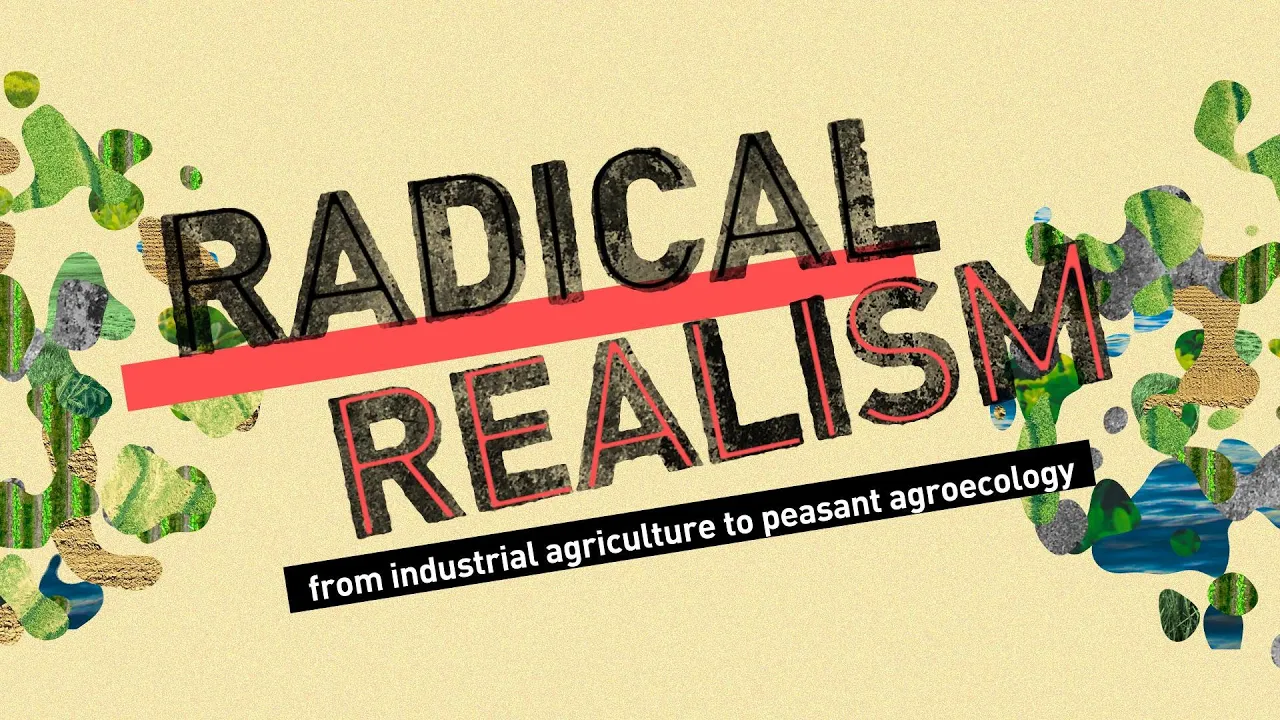 Watch on YouTube
Watch on YouTube
About the need for reclaiming a food system based on food sovereignty, small-scale farming and peasant agroecology.
With La Via Campesina
#2 Zero waste and circular economy
Radical Realism for Climate Justice: From Linear Economy to a Zero Waste Society - Heinrich-Böll-Stiftung
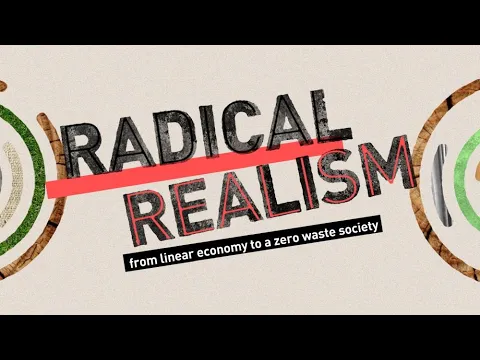 Watch on YouTube
Watch on YouTube
About the need for our linear, throw-away economies to shift to zero-waste, circular economies.
With Zero Waste Europe
Demanding this transformation is not ‘naïve’, it is radically realistic.
Publications
Radical Realism for Climate Justice
This publication is a civil society response to the challenge of limiting global warming to 1.5°C while also paving the way for climate justice. It brings together the knowledge and experience of a range of international groups, networks and organisations the Heinrich Böll Foundation has worked with over the past years.
Content
The boxed set "Radical Realism for Climate Justice" includes the following eight volumes:
-
A Managed Decline of Fossil Fuel Production
Chapter 1 -
Another Energy is Possible
Chapter 2 -
Zero Waste Circular Economy A Systemic Game-Changer to Climate Change
Chapter 3 -
Degrowth: A Sober Vision of Limiting Warming to 1.5°C
Chapter 4 -
System Change on a Deadline. Organizing Lessons from Canada's Leap Manifesto
Chapter 5 -
La Via Campesina in Action for Climate Justice
Chapter 6 -
Re-Greening the Earth: Protecting the Climate through Ecosystem Restoration
Chapter 7 -
Modelling 1.5°C-Compliant Mitigation Scenarios Without Carbon Dioxide Removal
Chapter 8
